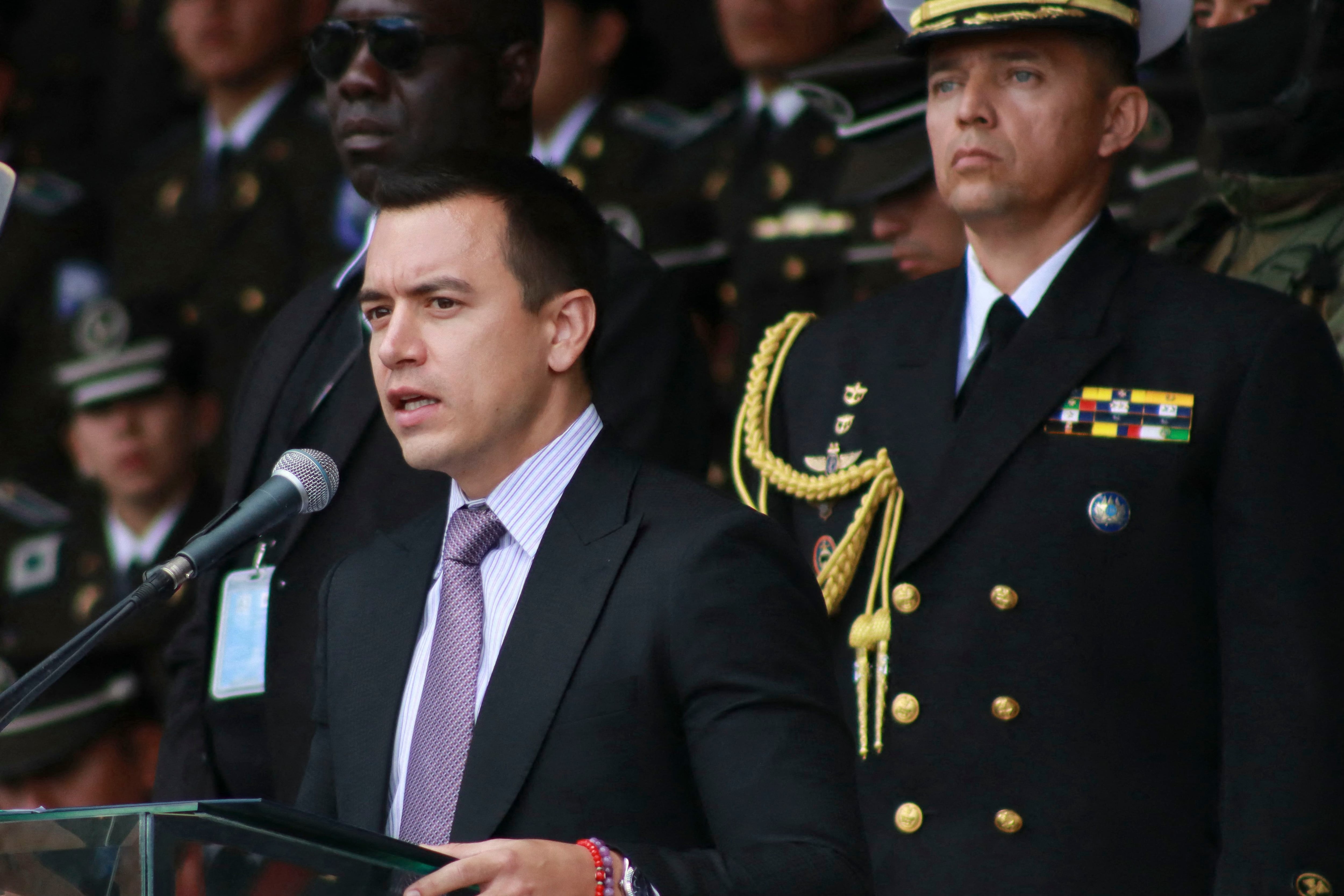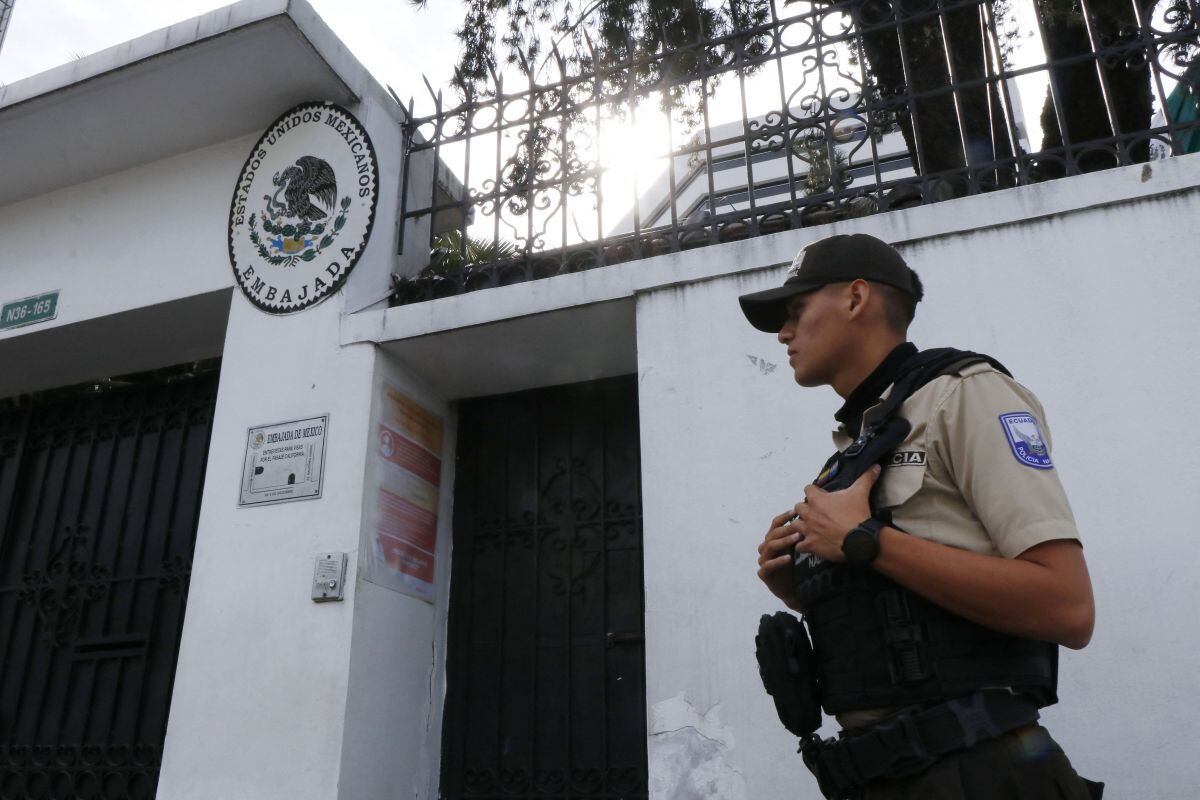The images of the police raid on the Embassy of Mexico in Ecuador It will go down as one of the most regrettable scenes in recent Latin American history. The fact was made known by the region’s leaders who condemned the unprecedented measure – contrary to international standards – carried out on Friday night by Daniel Noboa’s government.
TO LOOK: 5 keys to understanding Mexico’s diplomatic crisis with Ecuador after the police raid on the Mexican embassy in Quito
In dialogue with El Comercio, Elizabeth Salmón, professor of International Law at PUCP, emphasizes that the attack on the Mexican diplomatic headquarters in Quito must be treated as a violation of international law that cannot be repeated.
—How does international law consider an incursion of this type?
This is a clear violation of one of the main and oldest norms of international law, which is respect for diplomatic and consular relations. This form of relationship between States constitutes the clearest manifestation of a relationship of international cooperation, of friendship, of joint work, which is broken through an act like the one that occurred on Friday night.
—Do you remember anything similar in the region?
One of the most respected norms is that of safeguarding the inviolability of the diplomatic headquarters. This principle would be reduced to nothing if protection were not ensured against people who want to enter by force.
In Tehran, the capital of Iran, there was a very famous case in the 1980s in which Iranian students entered the US embassy under the accusation that it was a US spy center. Another example is the Peruvian embassy in Cuba, where thousands of Cubans entered to escape Cuba and on that occasion Fidel Castro’s government even opened penitentiary centers and literally said that “the scum of the revolution” should leave. Then he simply removed the protection of the Peruvian diplomatic headquarters and many people managed to enter.
There is no precedent of this type in which a receiving State or a territorial State enters the headquarters of the sending State with the use of force. It is something completely unusual in international law.
—What happens in this case to respect for the right to asylum?
It is an obligation between States to respect diplomatic asylum, even if they do not agree. No State dares to use armed force to enter an embassy. Let’s think about the case of Julian Assange, who was granted asylum at the Ecuadorian Embassy in the United Kingdom. It never occurred to the UK to walk through the door and remove Assange from the Ecuadorian Embassy. These are the rules of elementary behavior in a sovereign State.
—What does this tell us about the Noboa government in Ecuador?
I think there is a deterioration in respect between our countries. We see this in presidents who insult each other. There is a very marked break in this respect for the fundamental norm. This does not mean that this norm does not exist and that the majority of it is not complied with within the scope of international law, but that in recent days there have been exceptions that were previously very rare.
— Mexico announced that it will take the case to the International Court. What consequences could this have?
It is clear to the legal observer that Ecuador has violated a fundamental norm of international law on diplomatic relations. This will generate consequences not only within the International Court of Justice, but also at three levels. First in the daily lives of Mexican citizens in Ecuador and probably Ecuadorians in Mexico, who lose a space of protection. Also at the level of bilateral relations, which are in some way breaking down due to the weakening of the level of dialogue and international cooperation necessary to fulfill the agreements. And finally, also at the multilateral level, because Ecuador and Mexico are members of the Organization of American States and a series of institutions at both a regional and global level. Having such a confrontation does not help in terms of developing cooperation.

—What can happen at the International Court?
An action must be filed at the International Court of Justice, I believe that the Mexican State is capable of putting together a good action, of investing time and effort to not let this fact go unpunished.
But the level of response from the International Court of Justice, which issues mandatory sentences for states to comply with, will still take about three or four years. If the decision establishes that Ecuador has indeed violated this norm, the court may issue a measure of reparation or an official apology, etc.
—What position do you think neighboring countries should take in light of what happened?
The Organization of American States should probably make an appeal to try to ease the tension and find some way to repair this relationship. I also believe that individual States, at the level of public statements, could make an appeal and exert international pressure so that after this aggressive and illegal act by Ecuador they can, little by little, lower their spirits and try to find a solution.

—What kind of precedents does this leave, especially when the region faces democratic crises in countries like Venezuela, Nicaragua and Cuba?
It is a very dangerous and very destabilizing precedent, and should not serve as the basis for any kind of justification for future similar measures.
Ecuador is a State that followed a democratic system and that for several years faced a very strong crime situation, which led President Noboa to declare an internal armed conflict. This caused their popularity levels to increase in a very important way, there is talk of 80% acceptance of this idea of wanting to establish a strong hand.
We cannot forget that in a few months there will be elections in Ecuador. Therefore, there is also on the national agenda the issue of strengthening the image of a leader who wants to establish himself as a kind of democratic Bukele. Unfortunately, I believe that there is a national political factor that also influences the attempt to build an image of the national electorate to carry out these types of actions.
Source: Elcomercio
I am Jack Morton and I work in 24 News Recorder. I mostly cover world news and I have also authored 24 news recorder. I find this work highly interesting and it allows me to keep up with current events happening around the world.

:quality(75)/cloudfront-us-east-1.images.arcpublishing.com/elcomercio/6R6VF2CY3ZBFDHPMBPTLJ26WBU.jpg)





